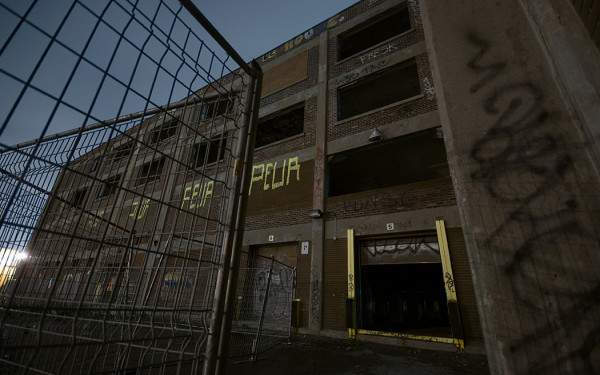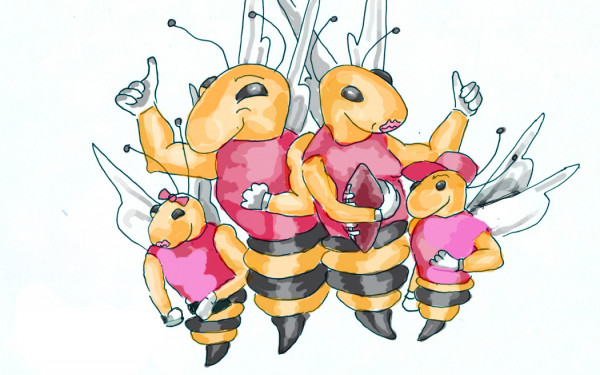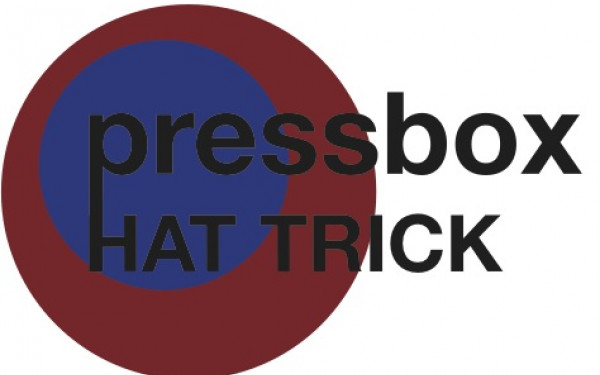Living in a Player’s Paradise
Over 1,000 Players Participate In Canada’s Biggest LAN Event
You wake up at noon. Empty energy drink cans lie around computer desks and the floor, and your favourite video game appears on the screen of a brightly lit monitor. This might sound like your apartment the morning after an all-night gaming session, but this is the norm at Lan ETS.
Lan ETS, now in its 13th year of existence, is a giant local area network (LAN) party that hosts eSports players who compete in a myriad of video games annually.
Held at the École de technologie supérieure de Montreal, the 2015 edition of Lan ETS hosted 1200 players, many with their own computer rigs, giving them a space to plug in and play with their friends either casually or competitively.
“In 2002 LAN parties [were] a big thing with all the LAN setups,” said William LeFrançois, the community manager of Lan ETS. “But it’s a challenge for us right now, setting up thousands of networks. The reason we do it is because we have fun together.”
Lan ETS began on Friday night with the setting up of gaming networks and an opening ceremony, before the tournaments started on Saturday morning.
The games included in the tournaments were high-profile titles such as Counterstrike: Global Offensive, League of Legends, DOTA 2, Starcraft 2, Hearthstone, Super Smash Bros: Melee and Super Smash Bros: Project M.
“At the end of the day you have sponsors, [and] they’re looking to support your event because you have popular games,” said LeFrançois, when asked about the selection of games at Lan ETS. “They have their target audience, so it’s not a decision about what game we love as an organizer. We go with the industry.”
LeFrançois said that the number of seats have increased at Lan ETS over the last few years, with tickets selling out faster and faster each year. Lan ETS 2015 sold out their tickets for the event in three hours. It’s a sign of the growing success of the eSports industry.
However, critics of the term “eSports” and its involvement in the video game industry remain, even with the popularity of games like League of Legends. The League of Legends Season Three World Championship garnered 32 million viewers online back in October of 2013.
“It’s a always a huge debate. What is eSports versus sports in general?” asked Alex “Vansilli” Nguyen, a shoutcaster—or video game commentator—for the Counterstrike: Global Offensive finals. “What’s similar about [eSports and traditional sports] is the amount of practice the players put in. [There’s] a lot of training in
terms of reaction times and thinking.
“It’s always a huge debate. What is eSports versus sports in general?” – Alex “Vansilli” Nguyen
“Of course it’s not as physical [as some sports] but at the same time eSports should be seen as a great spectator sport, because everybody loves watching it and it’s great entertainment in terms of watching competition,” Nguyen added.
“A lot of people in [the gaming] industry don’t believe it’s a sport,” LeFrançois said. He then added that NASCAR and eSports share some skills in terms of coordination, and therefore if NASCAR is a sport, eSports can be one as well.
Whichever side you’re on in the eSports debate, there’s no denying that Montreal is a city that loves video games. When the video game industry was sprouting, the Quebec government welcomed the industry with open arms. Now companies like Ubisoft, Electronic Arts Games, Warner Bros. and many independent developers call Montreal home.
“In the past we had a big LAN party culture in Quebec,” LeFrançois said. “I think that’s why it’s popular; people were like 14 years old attending LAN parties and now they’re still doing it.”
Nguyen believes the gaming community helped gaming and eSports grow in Montreal, pointing to the eSports community Boreal Gaming as an example.
“In a place like ETS, where it’s focused on computer engineering, you have a lot of fans from eSports and a lot of fans from gaming as well,” said Nguyen. “At the same time you’re also breeding some professional players locally in Montreal and that naturally brings out the crowd that is going to follow and support those players too.”
Of course, the success of the event is based on the enjoyment of the attendants. Fortunately for the organizers, players and spectators were cheering either from online live streams or the event itself.
“[I feel] exhausted, just drained of energy, but LAN was good, I liked it a lot,” said Derek Shao, one of the members of Freebirds, the team who took home first place in the League of Legends tournament.
“I love it. It’s been maybe about three years since I came back from the last ETS. It has a great crowd,” said Nguyen. “There’s a lot of spectators and it keeps growing and growing for CS:GO, so I love seeing this as it grows locally as well for Montreal.”
As for the future of Lan ETS and eSports in Montreal, the potential is there, and the organizers at Lan ETS have the intention of making their event bigger and more accessible for anyone who’s interested in playing or watching the games.
“We want to do it the right way and with the right people,” said LeFrançois.
So if you do find yourself up all night gaming in a Montreal apartment, just know that there’s a good chance you’re not alone, and you may be in the preliminary stages of a great eSports career.

1_900_341_90.jpg)
2_900_597_90.jpg)
_600_832_s.png)




